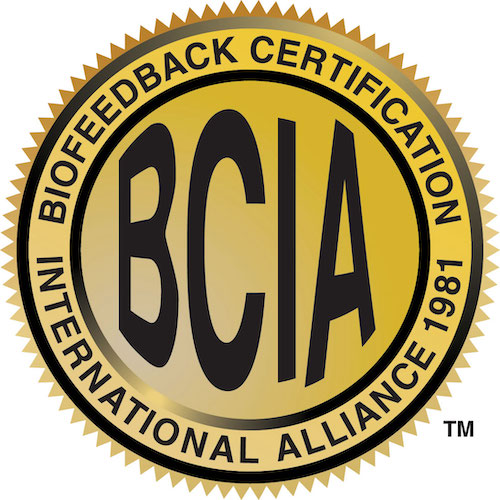- Home
- About Us
- Certification Programs
- Modalities Comparison Chart
- Biofeedback
- Neurofeedback
- HRV Certification/Certificate
- Pelvic Muscle Dysfunction Biofeedback (PMDB)
- International
- Find a Practitioner/Mentor
- Certificants
RecertificationContinuing Education US, Australia and Canada - BCIA requires certificants to complete 48 hours of accredited continuing education (30 hours for Senior Fellows) across each 4-year period that their biofeedback or neurofeedback certification is valid. All recertification applications require completion of a minimum of 3 hours of ethics or professional conduct course work and 10 hours of CE's SPECIFIC to your modality as part of the CE requirements. INTERNATIONAL OUTSIDE OF US, AUSTRALIA AND CANADA - Certificants are required to complete of 36 hours of blueprint- relevant, accredited CE (including hours of ethics) in the past 4 years. (Senior Fellows attest to 24 hours including 3 hours of ethics.) Ten percent of all recertification applications will be audited. The candidate will be notified requesting a CE log with copies of proof of course completion to be submitted within 30 days. If there is no response to our request for documentation, the application will be considered incomplete. If an application is incomplete or withdrawn, the candidate will be given time to complete the requirements. All fees are non-refundable. CE hours must be completed before you submit the recertification application. There are many ways to earn continuing education credits for recertification. All courses must be accredited and blueprint relevant. BCIA uses the term accredited to refer to courses offered by universities who are regionally accredited, approved by a national professional health care organization such as the AMA, APA, etc., or BCIA accredited. Many professionals can use course work taken to maintain professional licensure if the content is relevant to the field of applied psychophysiology and biofeedback/neurofeedback. Complete a log indicating all Continuing Education (CE) hours towards your recertification requirements. We recommend starting a file folder for your certificates of completion and use the Continuing Education CE log to help you keep track of the hours completed.
BCIA Options: There are several ways to gain continuing education. BCIA offers several different options:
Webinar Recordings/Articles & Exams
Let us know if you find some that were particularly helpful! BCIA Accredited Didactic Training Programs: Many of the accredited didactic training programs also offer short courses and workshops. To review a list of the programs and visit their websites, please use the following links:
Membership Organizations: Both AAPB and ISNR offer accredited CE at their annual meetings and both may offer the opportunity of purchasing recordings for any topics you may have missed. AAPB, ISNR, NRBS and Florida Biofeedback Society offer webinars. State/Regional/National Professional Associations: Many of those organizations offer accredited CE to help you maintain licensure. Should you find a course that is accredited by your licensing board and if the topic fits into the appropriate blueprint, this is an excellent way to gain CE for both your license and for your recertification. How can you tell? A course needs to fit two criteria:
BCIA 3-Hour Ethics Requirement for Recertification BCIA requires 3 hours of accredited course work in ethics/professional standards as part of the CE requirement for recertification. The intent of this requirement is to continually learn how to ethically and competently provide your services. These courses are not necessarily specific to bio or neurofeedback but they are very important to you as a health care professional. This category of education is quite broad and can include things like HIPAA, client confidentiality, record management, hygiene, etc. Many of you who are licensed health care professionals or who work in a hospital setting may have already taken appropriate courses to maintain your license or as part of your employment contract. They must be accredited by an outside body for you to be able to use them and they must have been completed within the timeframe of your recertification period. There are many accessible and affordable methods to earn these hours:
It is up to you to decide what course best fulfills your needs and is most accessible and affordable. For more recertification information please CLICK HERE. Progressive Recertification: Certificants recertify every 4 years and advance in the following order:
Recertification Fees in Biofeedback, Neurofeedback, PMDB and HRV Certification: Dates and Fees:
Your certification remains valid through the end of the year, however, BCIA is offering you a price break for filing your application early. We do not start sending the new certificates until fall, typically we begin issuing them in October in the order in which they are received and approved. Please note if you are currently certified in more than one area (Biofeedback and Neurofeedback or HRV-Biofeedback and PMDB, each recertification fee is reduced by $25. Application for Recertification |
